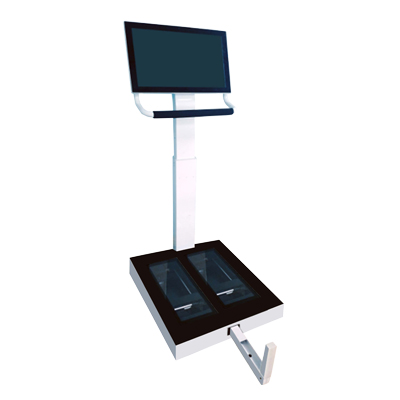With the increasing popularity of smart health devices, plantar scanners have quietly entered many rehabilitation centers, orthopedic clinics, sports rehabilitation centers and even some high-end insole customization stores.
It can not only “see your feet clearly”, but also “read your gait”. But many users have a common question:
“After the plantar scan, can a report be issued? Is it just a glance at the image?”
Today, let’s talk in depth: Does the plantar scanner support printing reports? What useful data are in the report? Is this “foot physical examination report” worth having?
1. Can the plantar scanner print reports?
The answer is – yes, and it is getting smarter and smarter.
At present, mainstream plantar scanners are usually equipped with professional analysis systems. After the scan is completed, the system will automatically generate a structured and graphical evaluation report. The report supports exporting to PDF and word formats, and can be directly printed. It is suitable for medical archives, training plan formulation, personalized insole design and other scenarios.

2. What is included in the report?
This “foot status snapshot” usually contains the following core information:
Foot structure parameters
Arch height, toe angle, heel eversion and inversion trend, etc., with millimeter-level accuracy.
Conclusion and suggestions
The system gives preliminary health advice or insole customization direction based on the algorithm or expert preset model to help the next intervention plan.
3. Why is this report important?
The root causes of many foot problems are hidden in invisible details, such as:
Do you feel foot pain after walking for a long time? It may be arch collapse;
Do you always rub your heels when wearing shoes? It may be foot rotation deviation;
It is easy to sprain when running? It may be serious inversion and inversion;
These can be identified in advance through the report, so as to achieve “prevention before foot disease”.
More importantly: the report records can track changes. For orthopedic intervention, rehabilitation training, personalized insole adjustment, etc., continuous recording reports can form a clear comparison and progress evaluation, which is scientific and intuitive.
4. Who is it suitable for?
People who are undergoing foot rehabilitation/physiotherapy training
People who need customized insoles and orthopedic shoes
People who are athletes, runners, and fitness enthusiasts
People who stand for a long time, have abnormal gait, and are prone to foot fatigue
Children’s growth foot monitoring needs
